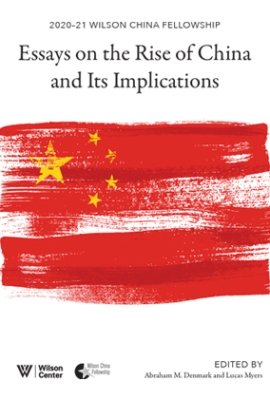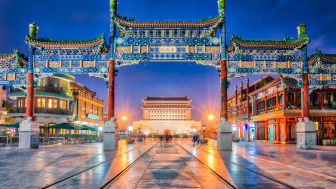Jessica Liao
Wilson China Fellow
Professional Affiliation
Associate Professor of Political Science, North Carolina State University.
Expert Bio
Jessica C. Liao is an Assistant Professor of Political Science at North Carolina State University (NC State). Her research focuses on international political economy and security of East Asia. Her current research addresses China and Japan’s economic statecraft competition and infrastructure development in Southeast Asia, and their social environmental implications to the region. She is the author of Developmental States and Business Activism (Palgrave 2016) and her publications appear on journals including The Pacific Review, Journal of Contemporary China, and Asian Survey. Prior to NC State, she was a Visiting Fellow at Monash University, Kuala Lumpur campus. She received her PhD in political science from the University of Southern California, and her MA in Asia-Pacific and China Studies from National Sun Yat-Sen University in Taiwan.
Wilson Center Project
A Green BRI and Environmental Developmentalism? Examining China's Financial and Policy Influence on Southeast Asia's Energy Development Future
Project Summary
This research aims to understand China’s motivations, position, and impact on Southeast Asia’s development future, with a particular focus on the energy sector. It includes three tasks: 1) a study of China’s foreign economic policy towards Southeast Asia, especially its energy development programs; 2) constructing an original cross-sectoral project-based dataset to investigate investment trends and the status of Chinese-financed energy projects in the region; 3) examine China’s role in influencing the region’s development and energy policies through various multilateral policy channels. The project will have both academic and policy relevance, helping to deepen the understanding of China’s influence in Southeast Asia and whether Beijing acts as “responsible stakeholder.” It will also illuminate the complexities of China-Southeast Asia relations under Beijing’s Belt and Road Initiative, and opportunities for the United States to hold China accountable and meaningfully engage Southeast Asia in improving the region’s wellbeing and sustainable development.
Insight & Analysis by Jessica Liao
- Past event
- Geoeconomics
US-ROK-Japan Trilateral Relations

- Publication
- Strategic Competition
The 2020-21 Wilson China Fellowship: Essays on the Rise of China and Its Implications

- Past event
Wilson China Fellowship Conference 2021



